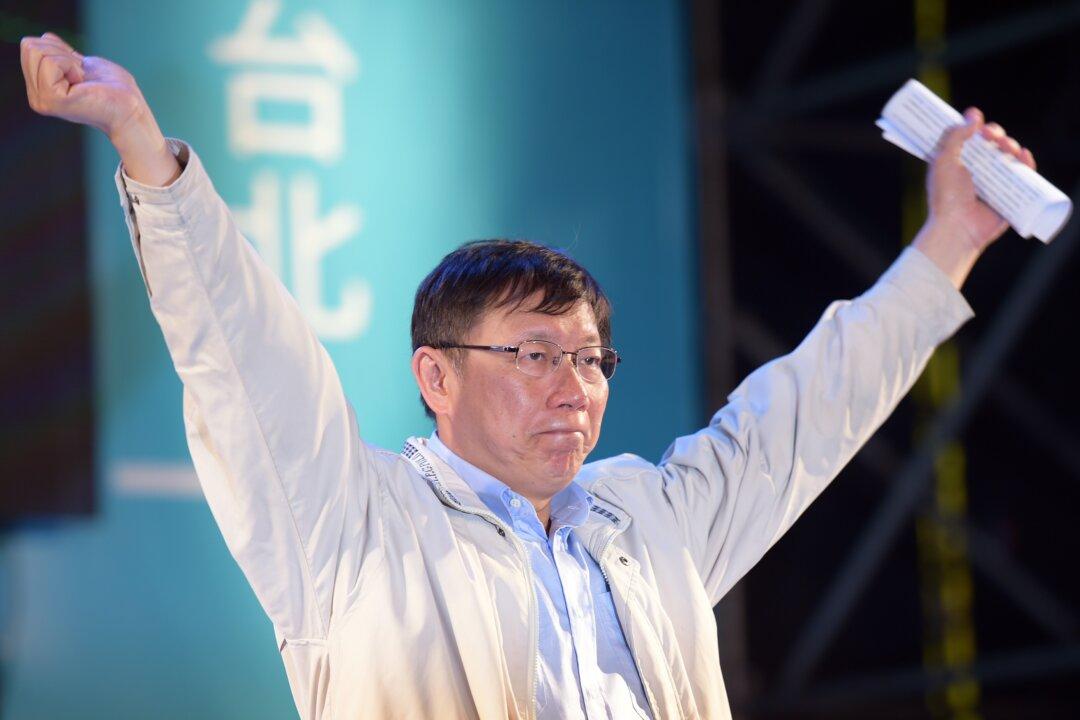News Analysis
Straying too close to communist mainland China may not have been the wisest move for the Republic of China’s Nationalist Party (KMT), which handily lost Taiwan’s latest round of regional elections held on Nov. 29. Of 22 regions, the KMT only won 6, while 13 went to the Democratic Progressive Party. Even the capital of Taipei, historically a KMT political stronghold, was lost to an independent candidate.
The KMT, once a sworn enemy of the Chinese communist regime, was driven out of the mainland to the island of Taiwan in 1949. At the end of the Cold War, the KMT stepped down from absolute power, ushering in a new democratic age for the island’s 20-some million inhabitants.
In recent years, the KMT went to great lengths to build good relations with Beijing, but these policies seem to have backfired. Many Taiwanese are concerned about the future of their country in the face of the mainland regime, their biggest trading partner— and also their biggest threat.
The Chinese Communist Party (CCP) does not recognize Taiwan as an independent country, nor does it recognize the democratic principles by which the island is governed. And even as hundreds of thousands of Taiwanese live and work in cities like Shanghai, 1000 Chinese missiles remain deployed against Taiwan.
Xu Sijian, a scholar of Chinese politics at Taiwan’s Academia Sinica, said the voters in Taiwan sent a strong signal to both the KMT and Beijing. “Especially after seeing the Occupy Central movement in Hong Kong, voters in Taiwan are more wary about the implications increased cross-strait relations could bring,” he said.
The CCP has long attempted to subvert Taiwanese politics by means of its “united front” strategy, in which organizations or individuals who are not part of the CCP are used to advance the CCP’s goals. This has not been lost on the part the Taiwanese people.
According to a report by the Süddeutsche Zeitung, “many Taiwanese are concerned that the influence of China on Taiwan will increase exponentially in the near future,” and “many Taiwanese fear that Ma Ying-jeou’s policies will make Taiwan dependent on China.”
During the 2012 Taiwanese presidential elections, the Chinese regime slashed prices of flights to Taiwan in half, hoping that more expats would travel home to vote for the KMT, the report said.
According to former Beijing University professor and Chinese dissident Yuan Hongbing, the Taiwanese electorate, by turning out the KMT, has expressed its dissatisfaction towards the administration’s relations with China.
“This election has taught the CCP a hard lesson,” Yuan said. “The CCP is sure to adjust its policy towards Taiwan. However, I believe that the CCP will never give up its desire to gobble up Taiwan.”




